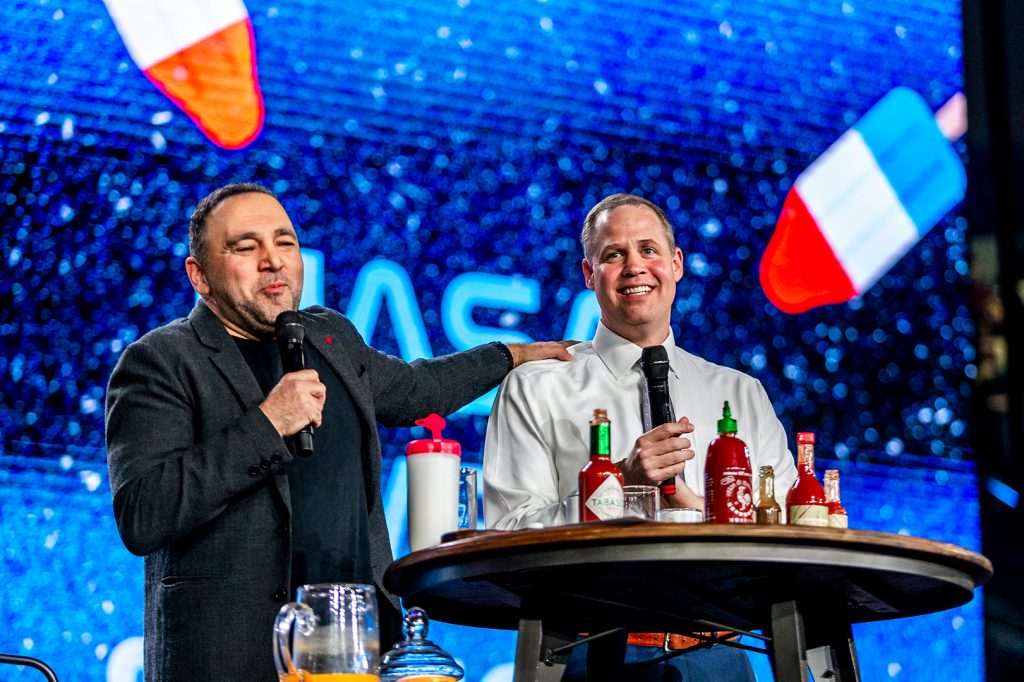NASA administrator Jim Bridenstine spoke to students at Convocation Friday, Feb. 7, to discuss his Christian beliefs and give insight into the future of United States space and aeronautics technology..
Bridenstine discussed his career history including his time as a Top Gun pilot in the U.S. Navy, serving as a U.S. congressman for Oklahoma and member of the Armed Services Committee and the Science, Space and Technology Committee and running the Tulsa Air and Space Museum. President Donald Trump appointed him in April 2018 to be the Administrator of NASA.
“We have not flown American astronauts on American rockets from American soil since the retirement of the space shuttles in 2011,” Bridenstine said. “But you should know this — this year NASA will be launching American astronauts on American rockets from American soil.”
Bridenstine said there is a large portion of younger Americans — himself included — who were not alive to witness NASA’s historic moon landing in 1969 or the other major achievements in the Apollo program.
He believes that the general public has a negative perception of NASA’s space program as a result of the memory of the devastating Challenger explosion in 1986. Bridenstine said he hopes that perception will change as the space program aims once again to reach the moon and, shortly after, Mars.
“It is a failure of our country that for 50 years we have not been back to the moon,” Bridenstine said. “We need to make sure that another generation doesn’t go by where the memory (of space travel) is a bad thing. We need it to be the stunning things. That’s up to your generation. You need to declare that we are going to go to the moon, we’re going to go with all of America, and now is our time.”
Bridenstine said NASA is currently working to develop partnerships with competitors such as SpaceX and Boeing, in hopes to cut costs and open doors to further space exploration. These commercial crew partners will carry humans like an airplane, shuttling people to their destination and home again.
The upcoming step is the “Artemis” program — named after the goddess of the moon, twin sister of Apollo in Greek mythology — which aims to send the next generation of human space explorers to the moon and to Mars.
By 2024, NASA plans to land the first woman and the next man on the moon. By 2028, NASA intends to collaborate with commercial and international partners and establish sustainable exploration. The next step is establishing a similar exploration system for Mars.
Bridenstine mentioned his respect for the astronauts onboard the Apollo 8 mission in 1968, who read Genesis 1:1-10 on a live broadcast after completing an orbit around the moon for the first time. He also praised Buzz Aldrin, the first man to take communion on the moon.
“Whether you know it or not, people are watching you,” Bridenstine said. “It doesn’t matter if you express what you believe or not, people see how you behave day in and day out.”
Tarr is a news reporter. Follow her on Twitter.
